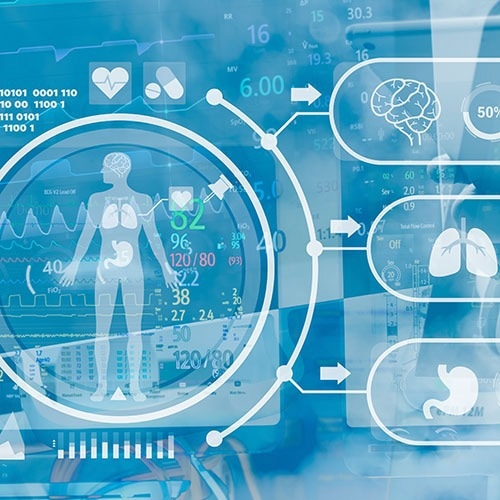A novel study from the University of South Australia has identified a range of metabolic biomarkers that could help predict the risk of cancer.

Image Credit: University of South Australia
Several markers also signaled chronic kidney or liver disease, highlighting the significance of exploring the underlying pathogenic mechanisms of these diseases for their potential connections with cancer.
The study, Hypothesis-free discovery of novel cancer predictors using machine learning, was conducted by UniSA researchers: Dr Iqbal Madakkatel, Dr Amanda Lumsden, Dr Anwar Mulugeta, and Professor Elina Hyppönen, with University of Adelaide’s Professor Ian Olver.
We conducted a hypothesis-free analysis using artificial intelligence and statistical approaches to identify cancer risk factors among more than 2800 features. More than 40% of the features identified by the model were found to be biomarkers – biological molecules that can signal health or unhealthy conditions depending on their status – and several of these were jointly linked to cancer risk and kidney or liver disease.”
Dr Iqbal Madakkatel, Researcher, UniSA
Dr Amanda Lumsden says this study provides important information on mechanisms which may contribute to cancer risk.
“After age, high levels of urinary microalbumin was the highest predictor of cancer risk. Albumin is a serum protein needed for tissue growth and healing, but when present in your urine, it’s not only an indicator of kidney disease, but also a marker for cancer risk.
“Similarly, other indicators of poor kidney performance such as high blood levels of cystatin C, high urinary creatinine (a waste product filtered by your kidneys), and overall lower total serum protein were also linked to cancer risk.
“We also identified that greater red cell distribution width (RDW) – or the variation in size of your red blood cells – is associated with increased risk of cancer.
“Normally, your red blood cells should be about the same size, and when there are discrepancies, it can correlate with higher inflammation and poorer renal function. As this study shows, also higher risk of cancer.”
Additionally, the study found that high levels of C-reactive protein - an indicator of systemic inflammation - were connected to increased cancer risk, as were high levels of the enzyme gamma glutamyl transferase (GGT)- a liver stress-related biomarker.
Chief investigator, Professor Elina Hyppönen, Centre Director of the Australian Centre for Precision Health at UniSA, says the strength of this study lies in the machine learning.
“Using artificial intelligence, our model has shown that it can incorporate and cross-reference thousands of features and identify relevant risk predictors that may otherwise remain hidden,” Prof Hyppönen says.
“It is interesting that while our model incorporated information on thousands of features, including clinical, behavioral, and social factors, so many were biomarkers, which reflect the metabolic state before cancer diagnoses.
“While further studies are needed to confirm causality and clinical relevance, this research suggests that with relatively simple blood tests it may be possible to gain information about our future risk of cancer. This is important as it can then allow us to act early, at a stage when it may still be possible to prevent the disease.”